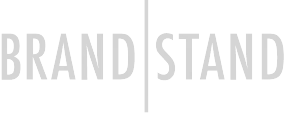By Steve Jarratt, Technology Writer

[UPDATED] Over the years, hotels have learnt never to underestimate how guests might mess with their rooms. They might spill red wine on the carpet or break electrical equipment. They might run off with a complimentary bathrobe or a bottle of shower gel. Or even take something bigger.
In fact, some of the things people take from hotel rooms might surprise you.
Theft is a real issue for hotels. According to a survey by Wellness Heaven [1], a luxury spa guide that reviews hotels across Europe and Asia, respondents report that the most popular products to pilfer are towels (77.5%) and bathrobes (65.1%). But the survey also claims that artwork has gone missing from rooms, pillows have vanished, while 22% of the hotels surveyed said that batteries had been mysteriously removed from in-room gadgets.
- The tech challenges facing hotels
- What guests really want from hotel tech
- Durable products designed for hotels
Sometimes even the gadgets themselves go missing. Tablet computers (aka SuitePads), remote controls and hair dryers have all reportedly been taken from rooms and, in 6.1% of the hotels surveyed, even TV sets have disappeared. If that wasn’t astonishing enough, just below TVs in the Wellness Heaven survey comes mattresses (4.2%). Apparently, “this only happens in the middle of the night – using elevators which lead directly to the underground parking.”
For hotels, continually replacing stolen or damaged furnishings and fittings can be costly. Especially when it comes to in-room tech. Naturally, not everything can be bolted down or chained to the wall - hotels aim to deliver a friendly experience not an oppressive one. But there are several steps that hotels can take to protect their more valuable items.
1. Make hotel technology secure
Where possible, hotels can protect against theft and damage by locking down technology items. There are various anti-theft solutions available, including: anti-theft hangers, fitted devices (e.g. hair dryers), anti-theft alarms for TVs and devices with C-clamps, so they can be secured to furniture.
The Brandstand CubieSpot is a secure, flush mount wireless charger designed for the hospitality industry.
Brandstand’s range of Cubie alarm clocks (which include wired and/or wireless charging options) come with anti-theft C-clamps and wood screws as standard. Meanwhile, wireless Qi pads like the Brandstand CubieSpot (above) can be fitted flush into a desk or bedside table, offering convenient charging for guests while limiting the opportunities for tampering.
2. Make hotel technology last
In-room technology should also be durable. Gadgetry might be pushed, pulled, knocked or splashed (accidentally or otherwise). So, it needs to be designed with the rigours of hotel use in mind. Brandstand’s Cubie power products are a case in point, built to be splash-proof and extensively tested so the plug and USB sockets pass 20,000 and 15,000 insertion/removal cycles without failure.3. Make hotel technology safe
There have been many instances of children poking things into sockets, resulting in shock, burns and even fatalities. So, the National Electric Code in the US now requires all hotel guest rooms to install tamper-resistant (TR) power outlets. This ensures that the shutters in a plug socket remain closed until a correctly-bladed plug is inserted.

Brandstand’s company mission is to develop the safest products for the hotel environment, so TR is built into the Cubie product range for the US, Europe and the Middle East as standard, even though it’s not a strict requirement in these geographic regions. All 220V products (for Europe, the UK and the Middle East) meet IEC60950 safety standards too, reducing the risk of accidental damage and injury.
4. Make the consequences obvious
Hotels can make it clear that guests will be charged for damaging or stealing from their rooms. Want to steal a towel? That’ll cost you £20. Thinking about taking the alarm clock? The hotel will charge you £70 to replace it. By including this information in booking correspondence and on signs in the rooms, hotels can attach meaningful consequences to room misuse and potentially stop it before it becomes a problem.Of course, none of these methods would have helped a hotel in Italy, which had a grand piano stolen from its lobby by three men in overalls. Or the Berlin hotel, where guests have removed shower heads, toilet seats and even an entire sink. Yes, a sink! The mind truly boggles.
Design, safety and durability are what make Brandstand products different. Find out more here.
Other posts you might like:
References:
[1] https://www.wellness-heaven.de/wellness/study-theft-in-hotels



